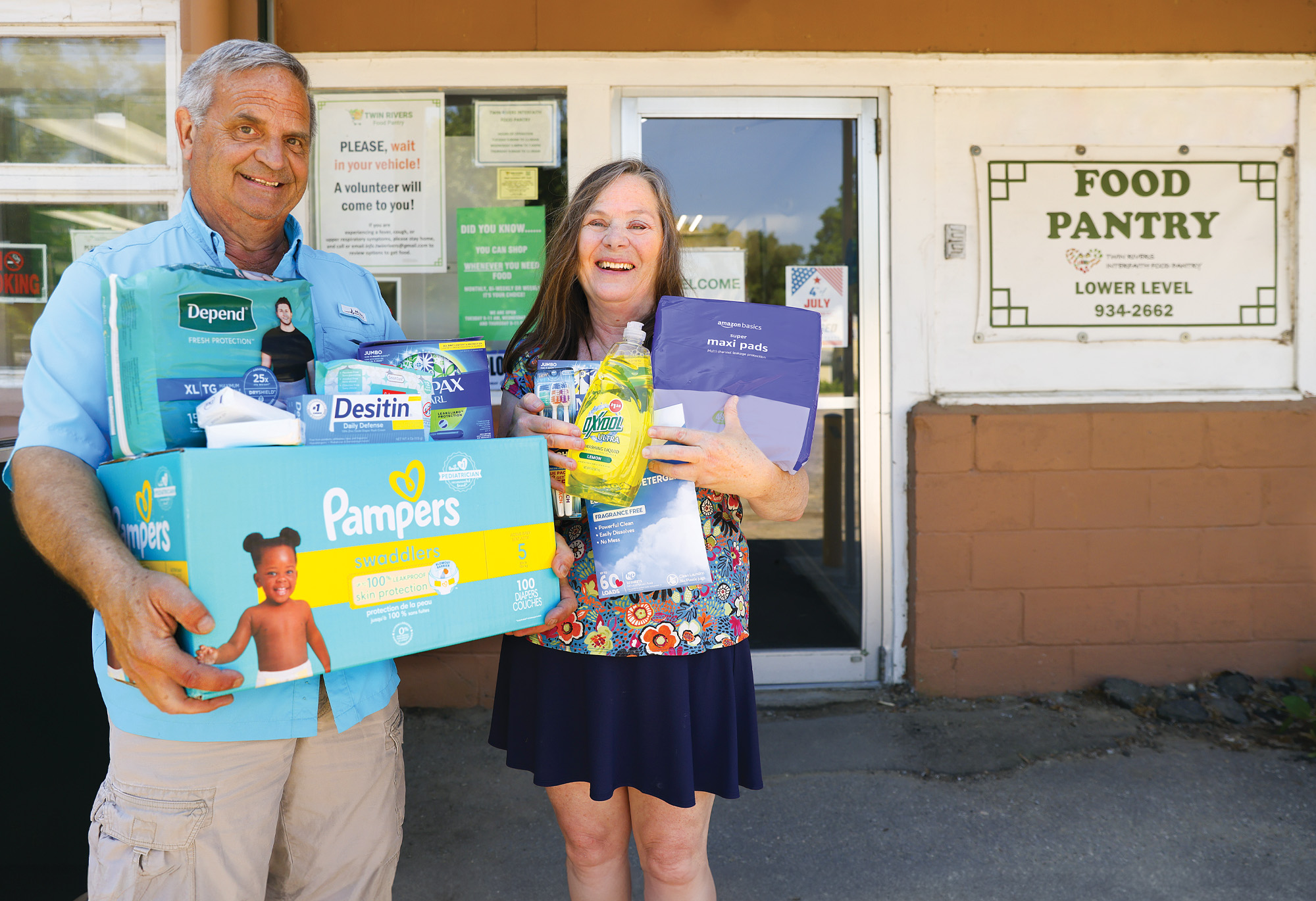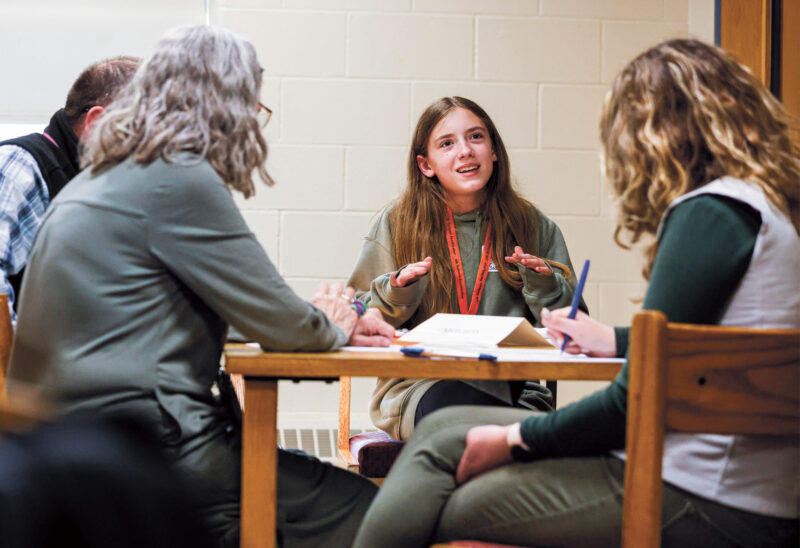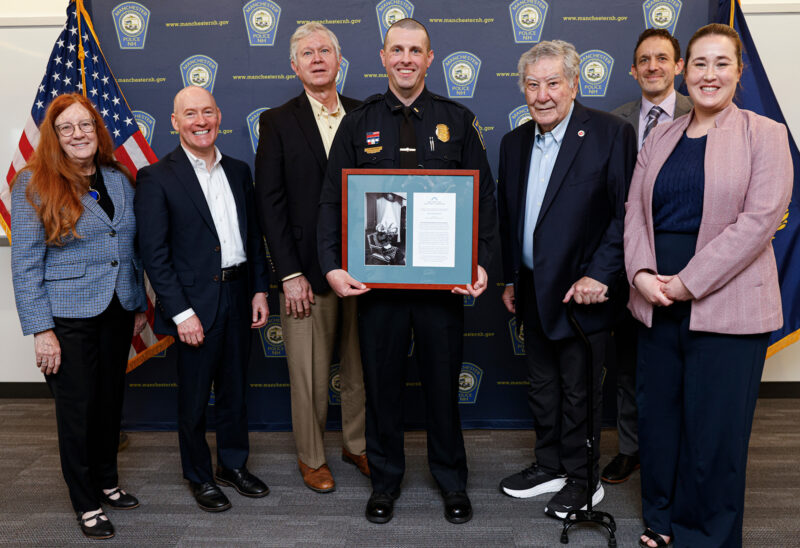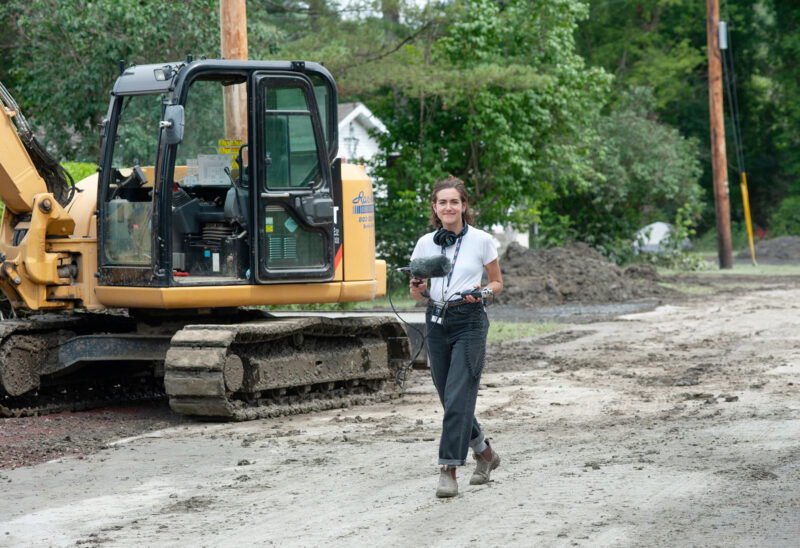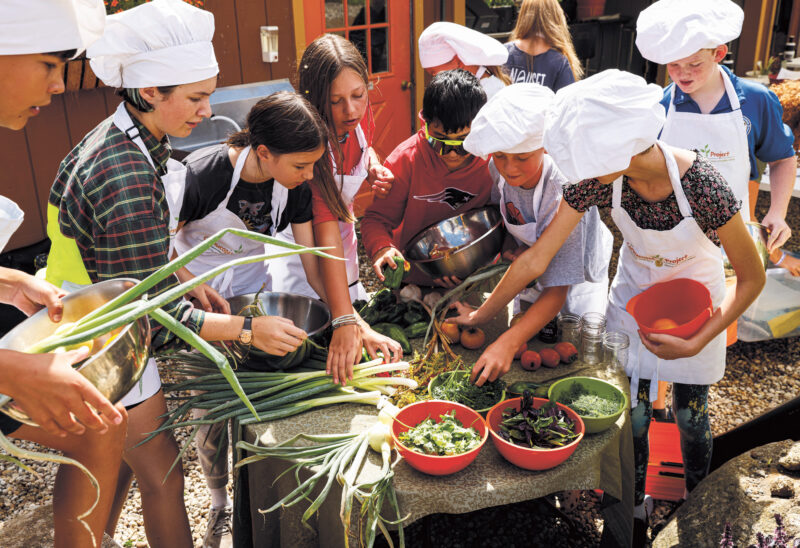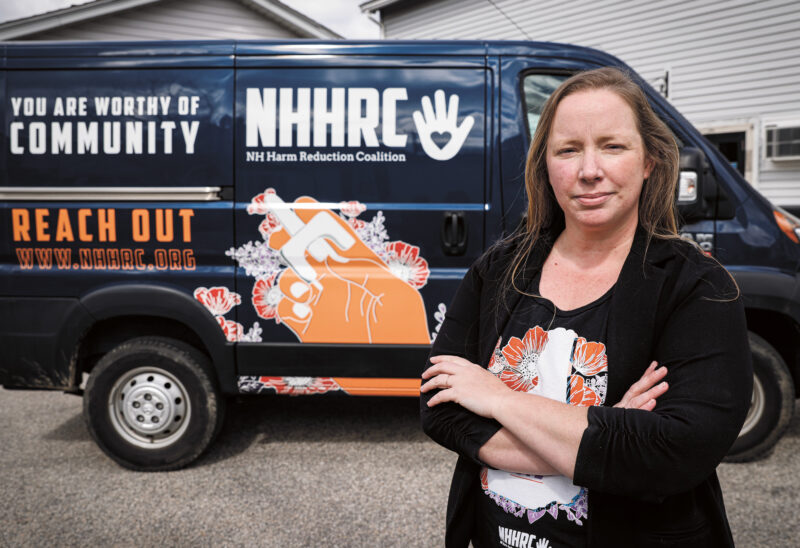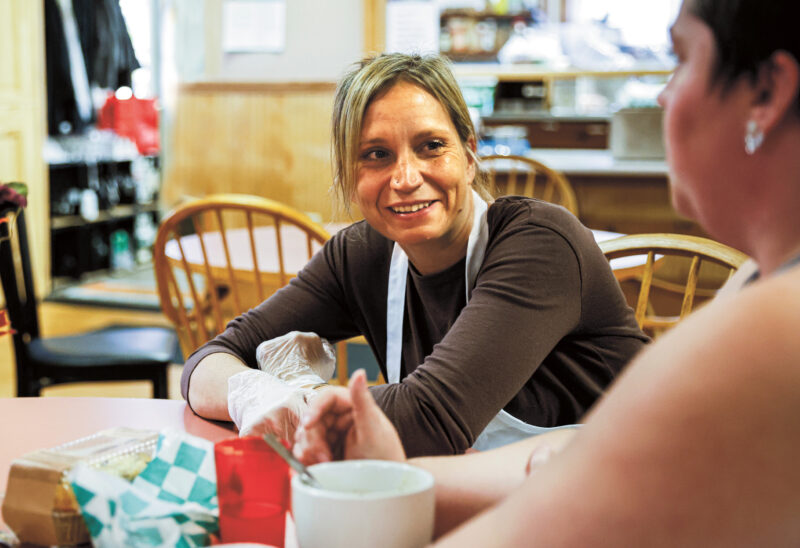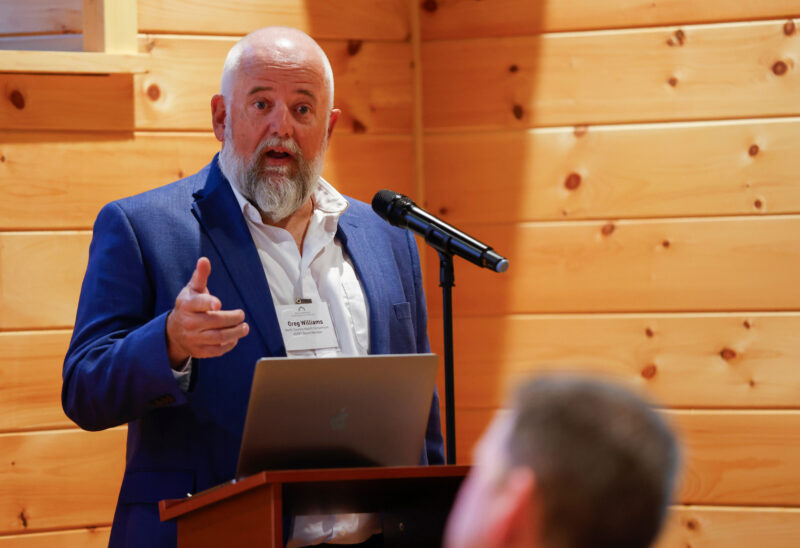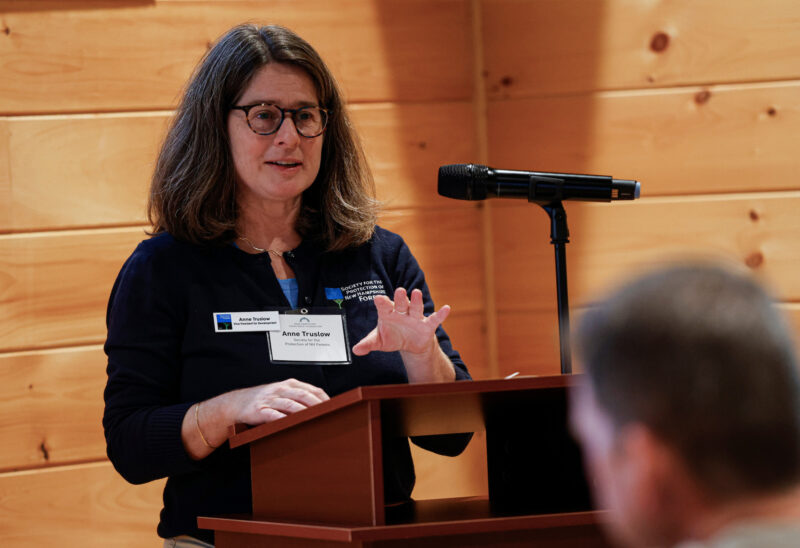When the mother of four came to the Twin Rivers Food Pantry in Franklin one morning in tears, it was the laundry soap that finally did it. This mom was usually composed, stoic, put together. Not today.
She could not send her kids to school because all their clothes were dirty and she could not afford laundry soap.
Poverty has a way of compounding itself. And, when it does, it often extracts awful costs from the most vulnerable.
The staff and board of the Twin Rivers Food Pantry in Franklin were hearing more frequently of people missing school, work or doctor’s appointments because of lack of basic hygiene supplies; of babies suffering from awful rashes because families could not afford enough diapers or any ointment.
Consider: In a household with a mom of childbearing age plus an infant and a teen girl, the cost of diapers and menstruation products averages about $140 a month. Add laundry soap, baby wipes and diaper-rash ointment and the cost climbs another $25 or so. For a family of three living at the federal poverty level, that cost approaches 10 percent of their total household income. And none of those things can be purchased with SNAP or WIC benefits.
Even though they knew it would be expensive and labor-intensive, the staff and volunteers at Twin Rivers created a “hygiene products” program. An “angel donor” contributed $10,000 to launch it.
Now, in addition to groceries, clients of this food pantry can get diapers, ointment, menstrual products, deodorant, soap, incontinence products, toothbrushes and toothpaste, dish soap, sunscreen — and laundry soap. Twin Rivers’ program is being seen as a model for replication.
Food insecurity rose by 40 percent in New Hampshire between 2021 and 2022 — from 6.8 percent to 9.7 percent, with even higher rates for children and for Latino residents. Increased cost of food and other necessities is a contributing factor. The Foundation made a multiyear operating grant to Twin Rivers in 2022.
This much is clear: No child should miss school for want of soap.

